It is crucial to have a solid Cane Corso diet plan for everyone’s favorite pooch. This guide will give you the ideal diet plan for your pet. It includes nutrition and healthy eating habits for optimal growth and health.
A balanced diet is important for your pup. Here is an example of a Cane Corso diet plan you can use:
| Food Type | Quantity | Feeding Time |
| Dry Dog Food | 2 cups | Morning & Evening |
| Fresh Meat/Protein (Chicken/Turkey) | 1 cup boiled or grilled meat per day (alternatively) | Night time |
Cane Corso Diet: Key Takeaways
Make sure always to offer water. Don’t feed fatty or sugary treats.
Not all dogs grow at the same rate, so ask your vet about adjustments based on age, weight, activity level, and medical conditions.
Physical activity is just as important as eating right. Walks or runs are good for fitness. Playing fetch and running off-leash help too.
Pro Tip: American Kennel Club recommends getting advice from a certified canine nutritionist before changing your pup’s diet. It is not just about filling up the bowl, it’s about nourishing a majestic beast.
.
Understanding the Cane Corso’s Nutritional Needs
To ensure your Cane Corso stays healthy and strong, it’s important to understand their nutritional needs. With my years of expertise in dieting and research, I’ve uncovered the importance of protein, the role of fat and the benefits of carbohydrates in your Cane Corso’s diet.
In the following subsections, we’ll explore these elements in detail.
The Importance of Protein in a Cane Corso Diet
Protein is essential for a Cane Corso’s diet, supplying amino acids for muscle growth and maintenance. It also helps to keep their coats healthy and shiny. Opt for high-quality animal proteins like beef, fish, lamb, and pork. Plant-based proteins like peas and lentils can be supplemented in the right ratios.
Too much protein on a Cane Corso diet can be dangerous – it can cause obesity, kidney damage, and other health problems. Monitor the protein levels in your pet’s food to ensure they get the right amount. Don’t underestimate the importance of quality proteins for your Cane Corso’s well-being!
Remember: A Cane Corso without fat in their diet is like a comedian without a punchline – just not funny.
The Role of Fat in the Cane Corso Diet & Feeding Plan
Fat is a vital nutrient for a Cane Corso diet. A lack of it can lead to skin and coat problems, slower growth, and a weakened immune system.
The owner of a young Cane Corso consulted their vet. The vet advised to include more healthy fats like fish and plant oils into their diet. Carbs are like energy bars for dogs; they keep the Cane Corso’s tummy full and tail wagging.
| Benefits, sources, and recommended amounts: |
|---|
| Joint health: Fish oils, Flaxseed oil, Chicken skin (15-20% of daily caloric intake). |
| Vitamin & mineral absorption: Salmon, Pork fat, Coconut oil (10-12% of daily caloric intake). |
| Hydration & energy source: Sardines with water or oil, Duck fat, Lamb fat (limited amount 2.5-3%). |
The Benefits of Carbohydrates in the Cane Corso Diet
Carbohydrates are key for a Cane Corso diet and well-being. Without them, they won’t develop fully and receive long-lasting energy from food. But carbs give more than calories: essential vitamins, minerals, fiber, and glucose for properly functioning organs and processes.
How much your pet needs depends on age, size, activity and health. Always consult a vet before making a meal plan, because not getting proper nutrition can lead to health issues. So make sure your Cane Corso gets the right carbs for their growth and development… and for a happy life!
Creating a Meal Plan for Your Cane Corso Diet Needs
To ensure your Cane Corso’s optimal health, it is important to create a meal plan that meets their dietary needs. With my years of experience in dieting, I understand the importance of a well-balanced diet for your furry friend. In this article, I will guide you through creating a meal plan for your Cane Corso. We will explore various ways of meeting your Cane Corso’s diet needs, such as choosing high-quality dog food, incorporating homemade meals, and adding nutritious supplements.
Choosing High-Quality Dog Food for Your Cane Corso
Choose a Nutritious Diet for Your Cane Corso’s Well-Being.
To keep your Cane Corso healthy, offer them high-quality food. Here are some tips to consider:
- Read Labels: Check the ingredients to ensure the food meets the nutritional standard.
- Check Protein: Look for foods with meat as the primary protein source rather than fillers like corn.
- Avoid Additives: Select foods without chemicals and preservatives to avoid allergies and stomach issues.
- Look for Breed-Specific Formulas: Foods made for Cane Corsos can address health concerns and enhance their well-being.
Consult your vet for feeding schedules and portion sizes. Also, provide fresh water and monitor their weight. With proper diet care, your furry friend will live happily.
I once had trouble feeding my Cane Corso due to digestion issues. So, I consulted my vet and cooked home-cooked meals, following recipes rich in nutrients to promote digestive health. The results were wonderful – my buddy recovered vitality, improved his coat condition and overall well-being!
Time to whip up something special for your furry friend!
Incorporating Homemade Meals into the Cane Corso Diet
Consult your vet first to check if homemade meals suit your Cane Corso diet.
Think about lean meats or fish as a protein source. Include a variety of fruits and veggies for added nutrients.
Measure portions accurately – too much can cause weight gain and health problems.
Be mindful of food that’s toxic for dogs – like onions or chocolate.
Introduce new food gradually and watch for any reactions.
Handle food safely – cook meats thoroughly and wash produce before use.
Making homemade meals takes time and effort. But it’s rewarding knowing your Cane Corso is getting optimal nutrition.
Remember to meet dietary needs based on age, activity level, and health. Give them proteins, carbs, fats and essential vitamins for the best outcome.
Nutrition is key for your dog’s physical performance. Quality food prepared specifically for their nutrition requirements will keep them healthy.
Add nutritious supplements to give your Cane Corso an extra boost – kibble only goes so far.
Adding Nutritious Supplements to Your Cane Corso’s Diet
For optimal health and nutrition of your Cane Corso, consider adding supplements to the diet. Omega-3 Fatty Acids, found in fish oil, can help with skin and coat health, reduce inflammation, and support cognition—Probiotics aid digestion and gut health. Glucosamine and Chondroitin help joint health and prevent arthritis. Vitamin E boosts immunity and maintains healthy skin. Coconut oil aids digestion, promotes healthy skin and coat, and increases energy. Pumpkin Puree is a source of vitamin A and potassium that helps with digestive regularity.
Before making any changes, consult your vet. They’ll give personalized advice on which supplements suit your pup’s needs. Cane Corsos are strong and intelligent. Max, a Cane Corso, even saved his owner from a home invasion! Keep your faithful companion healthy with a nutritious diet and valuable supplements so that you can tackle life together! Don’t be late for dinner with a Cane Corso, or you may end up on the main course!
Implementing a Feeding Schedule for Your Cane Corso Diet
To implement a helpful feeding schedule for your Cane Corso diet plan, you need to determine the appropriate amount of food, calculate how often you should feed your dog, and time their meals appropriately. Determining the Right Amount of Food for Your Cane Corso, Calculating Meal Frequency for Your Cane Corso, and Timing Your Cane Corso’s Meals for Optimal Health are sub-sections that will provide you with the necessary information to make informed decisions about your Cane Corso’s diet.
Determining the Right Amount of Food for Your Cane Corso Diet
Figuring Out the Perfect Serving Size for Your Cane Corso Diet
Knowing how much food to give your Cane Corso is essential for their well-being. This helps to avoid overfeeding, undernutrition, and other health issues. Here’s a guide on what to do:
| 1. Check Their Weight | Weigh your Cane Corso and assess their body condition. |
| 2. Calculate Calories | Use vet-recommended calculators to work out their daily calorie needs based on age, weight, and activity level. |
| 3. Get Professional Advice | Speak to a vet or certified animal nutritionist to make sure you’re picking the right food and serving size. |
| 4. Monitor Eating Habits | Track their food intake and make sure they’re eating at regular intervals, with no leftovers or overfeeding. |
| 5. Adapt Over Time | As your Cane Corso ages, gets pregnant, or is ill, their calorie requirements may change; adjust accordingly. |
When working out their feeding timetable, consider their physical activity and any health conditions. Also, don’t give them too much fatty or salty food from your plate.
Calculating Meal Frequency for Your Cane Corso
Find the Optimal Meal Frequency for Your Cane Corso’s Diet!
To guarantee your Cane Corso has the proper nutrition, you must discover their ideal meal frequency. Here are 3 easy steps to help you figure out their perfect feeding routine:
| Look at Their Age and Weight: | Check Out High-Quality Dog Foods: | Talk to Your Veterinarian: |
|---|---|---|
| Younger, more active pups require more frequent feedings. Whereas, older or heavier dogs may benefit from fewer meals a day. | Not all dog food brands offer the same nutrition level. It’s essential to do research and find a product that fits your pup’s dietary needs. | They can provide direction on ideal meal frequency and portion sizes based on your dog’s age, weight, and health. |
Remember that every dog is different, so it could take a few tries to identify the perfect feeding schedule for your Cane Corso.
Pro Tip: Use a measuring cup or kitchen scale to exactly distribute your pet’s meals according to their ideal caloric intake. Feeding your Cane Corso punctually is like winning doggy lotto – the ultimate prizes are their well-being and joy.
Timing Your Cane Corso’s Meals for Optimal Health
It’s key to provide a proper feeding schedule for your Cane Corso. Timing meals correctly helps them gain maximum benefits. This also keeps their metabolism regular and avoids overeating, which can lead to health issues like obesity.
When feeding your Cane Corso, take their daily energy requirements into account. Match their feeding time with their activity level to help them maintain a healthy weight. Splitting meals into smaller portions throughout the day is also a good way to prevent bloating and digestive issues.
Giving them treats or snacks at reasonable times throughout the day can help manage their diet. But be careful, as treats are often high in calories and can undo any weight loss progress or even cause overweight issues.
It’s important to understand how much food your Cane Corso needs daily. Use nutritional guidelines from your vet or puppy food suppliers. This ensures their dietary demands are met while letting them enjoy physical activities.
A consistent feeding regimen offers many benefits beyond sustenance. It helps bond with humans and limits negative behaviors like excessive begging. It also supports anxiety relief by enhancing one-on-one interactions between owner and pet.
Watching your Cane Corso’s weight is like trying to balance a seesaw.
Maintaining a Healthy Weight for Your Cane Corso
To ensure that your Cane Corso stays healthy and at the right weight, you must be aware of the risks of obesity that your dog may face. To maintain a healthy weight for your Cane Corso, it is important to monitor their weight and body condition regularly.
Through this, you can make adjustments to their diet as necessary. Throughout this section on maintaining a healthy weight for your Cane Corso, we will explore the risks of obesity and the importance of monitoring weight and body condition. We will also discuss adjusting diets to keep your Cane Corso healthy.
Understanding the Risks of Obesity in Cane Corso’s
Cane Corso breeds can become overweight without a balanced diet and exercise. Unhealthy weight can cause joint, heart, and respiratory issues. To protect your Cane Corso’s health, watch their food intake and make sure they get physical activity.
Overweight Cane Corsos are at risk for decreased mobility and orthopedic concerns like hip dysplasia. They can also get respiratory tract infections, heart problems, decreased immunity, and cancer due to obesity.
Ensure your Cane Corso gets high-quality protein, minerals, and vitamins that meet their breed-specific and age-related needs. Give them treats in moderation – never as meal portions.
Your Cane Corso needs daily physical exercise for at least 60 minutes. This can be running, walking, or indoor play sessions. Exercise keeps metabolism healthy and lowers the risk of obesity-related illnesses.
For all Cane Corsos, staying lean is essential for wellbeing. But it’s especially important for overweight dogs because it decreases the odds of getting life-threatening diseases. Monitor your pup’s waistline and make sure they stay healthy!
Monitoring Your Cane Corso’s Weight and Body Condition
Keeping your Cane Corso healthy and happy depends on monitoring their weight and body condition daily. This will protect them from health issues associated with obesity and underweight conditions.
Check their body condition, monitor their weigh-ins regularly, and feed them the correct amount and food quality.
Scheduling frequent weigh-ins allows for adjustments to diet and exercise routines. Provide a balanced diet with quality food and portions to maintain a healthy weight.
Listen for clues from your Cane Corso’s behavior. If they’re over or under the proper weight range, signs of discomfort or illness may occur.
My friend recently experienced a traumatic event due to her absence leading to her pet’s sudden death. The vet attributed this to poor eating habits.
Therefore, it is essential to control portions unless you want to turn your Cane Corso into a Bane Corso!
Adjusting Your Cane Corso Diet as Needed to Maintain a Healthy Weight
To keep your Cane Corso’s weight healthy, adjust their Cane Corso diet according to their needs. Here are some tips:
- Choose high-quality dog food with healthy ingredients
- Measure food and avoid overfeeding
- Avoid table scraps and high-calorie treats
- Add veggies and fruits as snacks
- Monitor weight regularly and consult a vet if needed
Remember, each Cane Corso is unique, so their dietary needs may vary. Talk to a vet about individual requirements to maintain an ideal body condition score.
To prevent health problems, keep a balanced diet and exercise routine. Ensure your furry friend gets enough physical activity, walks, interactive games, and playtime with other dogs. Exercise not only keeps them fit but also stimulates their minds.
Overall, nutrition and exercise will lead to a long-lasting bond between you and your Cane Corso with fewer health issues. Assess their unique dietary needs to maintain a joyous lifestyle. Keep your Cane Corso healthy and well-fed!
Frequently Asked Questions
Q: What is a Cane Corso diet plan?
A: A Cane Corso diet plan is a specific meal plan designed to meet the dietary needs of a Cane Corso breed dog. It considers their size, age, activity level, and any health concerns to ensure they get the proper nutrition.
Q: What should be included in a Cane Corso diet plan?
A: The Cane Corso diet plan should include high-quality protein sources, such as chicken, beef, or fish, as well as a variety of vegetables and fruits for essential vitamins and minerals. It should also include healthy fats, such as omega-3 fatty acids found in fish oil, to promote optimal health.
Q: How often should I feed my Cane Corso?
A: Your Cane Corso should be fed two to three times a day, depending on their age and activity level. Puppies may require more frequent feedings, while older dogs may need less. It is essential to portion control and not overfeed, as Cane Corsos are prone to obesity.
Q: Can I feed my Cane Corso table scraps?
A: It is not recommended to feed your Cane Corso table scraps, as they may contain unhealthy ingredients, such as fats, salt, or sugar. It is best to stick to a well-balanced diet that meets their nutritional needs.
Q: Should I feed my Cane Corso a raw food diet?
A: A raw food diet may be an option for a Cane Corso, but it is important to consult with a veterinarian or canine nutritionist to ensure that it meets their dietary needs. Raw food diets can be difficult to balance, and there is also a risk of foodborne illness.
Q: How can I tell if my Cane Corso is overweight?
A: You can tell if your Cane Corso is overweight by feeling their ribs. You should be able to feel the ribs without pressing too hard or seeing them. If you cannot feel the ribs, or they have a layer of fat covering them, your dog may be overweight. Additionally, a Cane Corso may have a waistline, but it should not be too pronounced.
Conclusion: Cane Corso Diet
Are you a Cane Corso owner searching for a comprehensive diet plan? Look no further! Here’s our Ultimate Guide to Cane Corso Diet Nutrition.
| Food Type | Quantity per Day | Details |
|---|---|---|
| High-Quality Dog Food | 2 to 4 cups, depending on age | Must contain balanced nutrition |
| Raw Meat Diet | Half pound, spread over two meals | Include organ meat and vegetables |
| Home-Cooked Meals | Consult with Veterinarian | Vegetables, meats, and grains in proportion |
Prescribe vitamin supplements as necessary. Also, ensure your Cane Corso has access to clean drinking water. Avoid providing human food while training or snacking, except as a rare treat.
Remember, Cane Corsos are athletic and loyal creatures. They need plenty of exercise and nourishment to stay healthy and happy. Until next time, happy feeding!
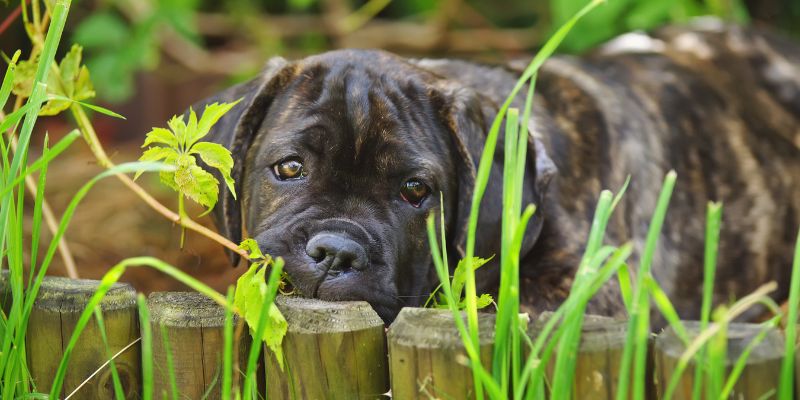
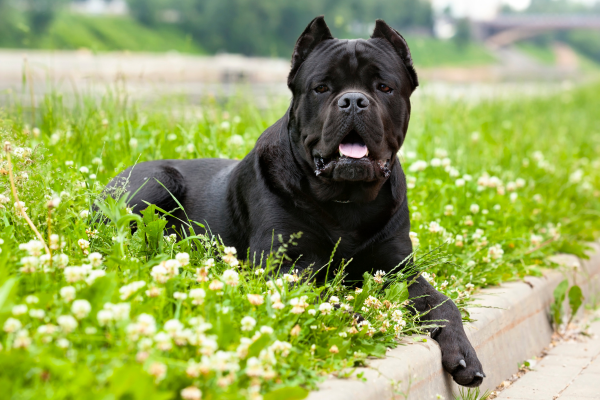
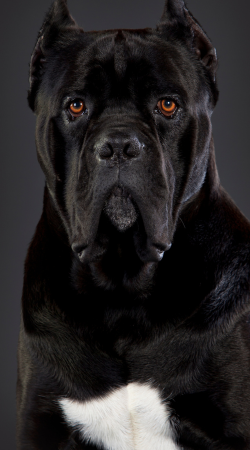
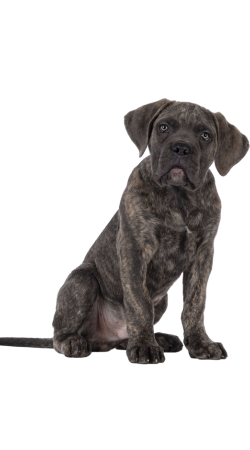
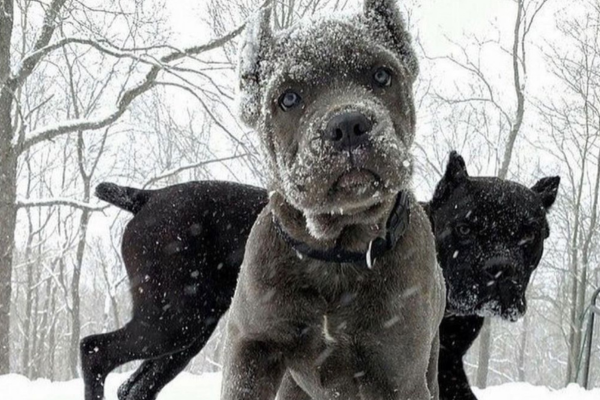
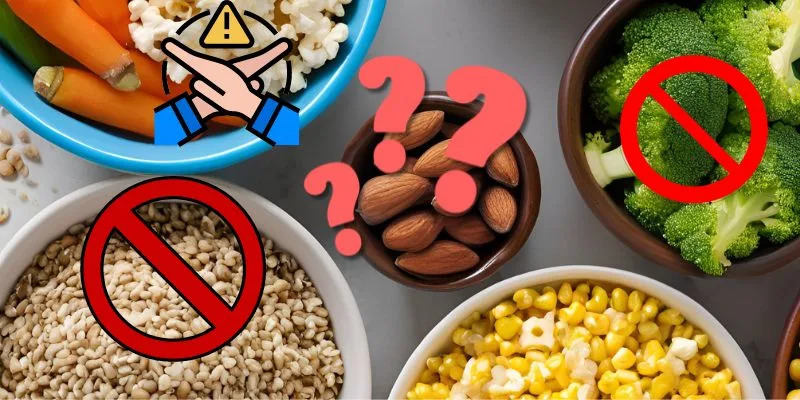
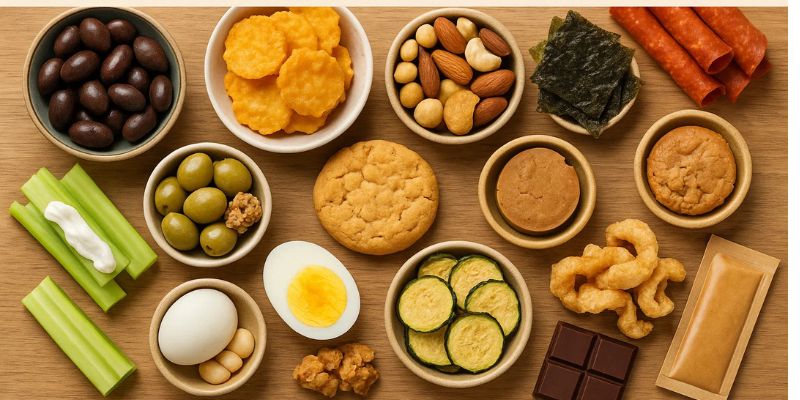
![101 Soft Foods to Eat Post Oral Surgery [Meals, Snacks & Dessert]](https://www.livedontdiet.com/wp-content/uploads/2021/09/101-best-soft-foods-to-eat-after-oral-surgery.jpg)